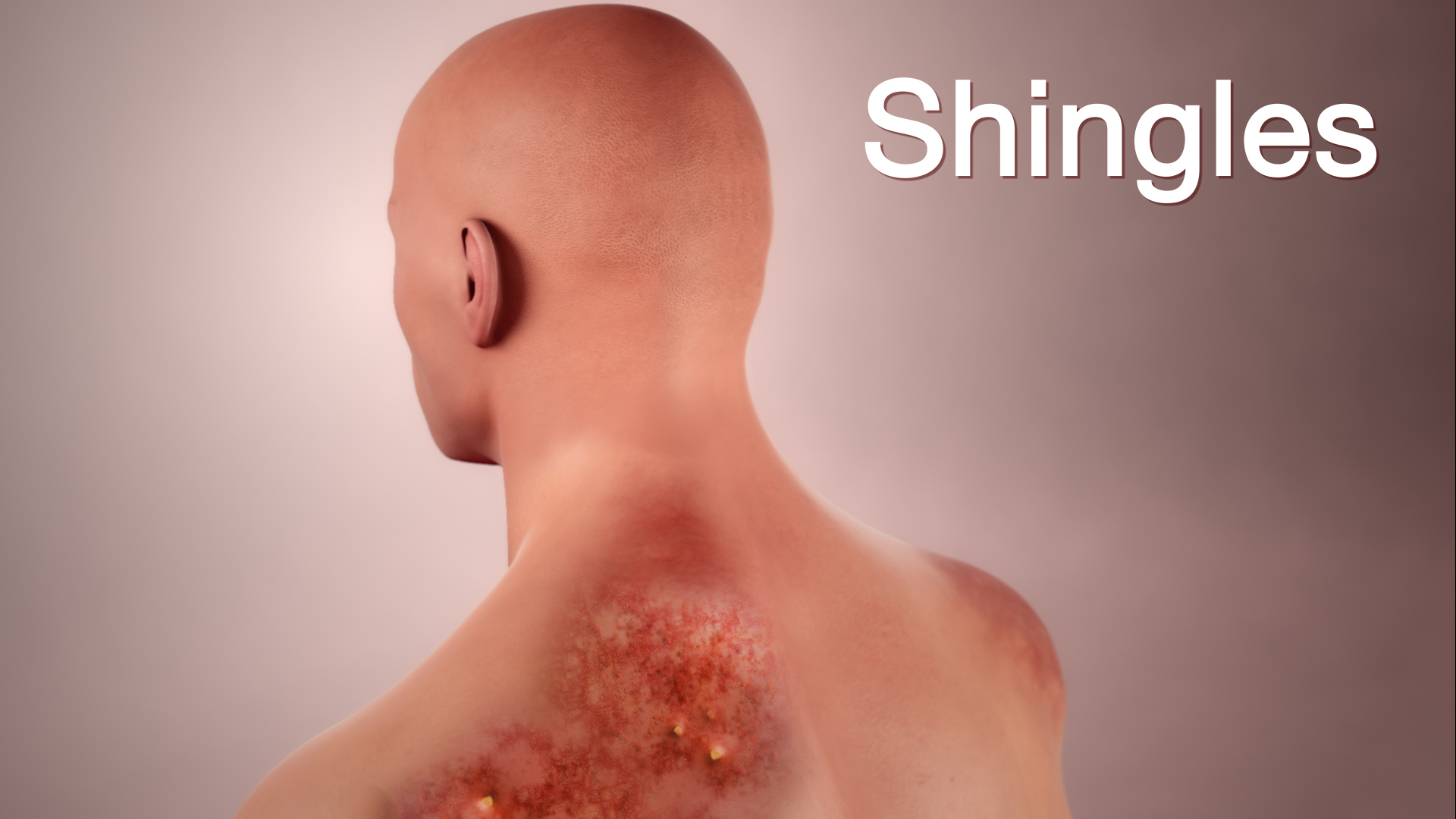Shingles is a viral infection caused by the virus Varicella zoster -- the same virus that also causes chickenpox. After exposure to chickenpox, the virus remains dormant in nerve tissue near the spinal cord and brain. V. Zoster can get reactivated later in life. It causes a rash that can appear anywhere on the body, is very painful, and mostly appears as a stripe of blisters. Though shingles is painful, it is not life-threatening. A person who has had chickenpox or who has been exposed to the Varicella zoster virus is at risk of getting shingles. It most commonly affects people over the age of 50, but younger people may also get it. In most adults, the virus remains dormant, but in some, reactivation can recur multiple times. It is estimated that 1 out of 3 people in the US are afflicted with shingles in their lifetime.
Symptoms
The signs and symptoms usually appear on one side of the body. The most common symptoms of this disease are:
- Intense pain
- Burning, numbness, and tingling sensation
- Itching
- A red rash that develops a few days after the pain
- Blisters filled with fluid that break open and form crusts
- Fatigue
- Headache
- Fever
- Sensitivity to light
Complications
Besides the symptoms, people can experience severe complications from shingles. These complications are:
- Postherpetic neuralgia: the damaged fiber nerves send messages of exaggerated pain from the skin to the brain
- Neurological problems
- Loss of vision
- Skin infections
Causes
Shingles is a viral infection that is caused by the virus, varicella-zoster. It is the same virus that causes chickenpox. After one recovers from chickenpox, the virus may enter the nervous system and lays dormant indefinitely. Sometimes it gets reactivated and travels from the nerve pathways to the skin and causes this skin disease. But everyone who gets chickenpox may not get shingles. The exact reason why this virus gets reactivated in some people and why it does not in others is not clear but there are certain factors that may trigger this virus to reactivate. These factors are:
- Stress
- Age above 50 years
- Treatment or conditions that weaken the immune system
- Cancer or cancer treatments
- Certain medications
Treatment
Antiviral drugs are prescribed in shingles to reduce the duration and the severity of the symptoms, reduce the risk of the rash developing again, and to prevent complications from developing. It causes intense pain so the doctor may also prescribe a topical patch, anticonvulsants and numbing agents, medicines that contain narcotics such as codeine, and injections containing corticosteroids and local anesthetics. Reducing stress and eating healthy meals also help in managing symptoms.
Most people make a complete recovery from it within 3 to 5 weeks. But the risk of complications is high. People with a weakened immune system are most susceptible to getting shingles. Vaccination during childhood with the Varicella vaccine can prevent both chickenpox as well as shingles.
Disclaimer: The information in no way constitutes, or should be construed as medical advice. Nor is the above article an endorsement of any research findings discussed in the article an endorsement for any of the source publications.
Sources-
- https://www.healthline.com/health/shingles-pictures#scabbing-and-crusting
- https://www.medicalnewstoday.com/articles/154912.php#prognosis
- https://www.webmd.com/skin-problems-and-treatments/shingles/ss/slideshow-shingles-pictures
- https://www.mayoclinic.org/diseases-conditions/shingles/symptoms-causes/syc-20353054









